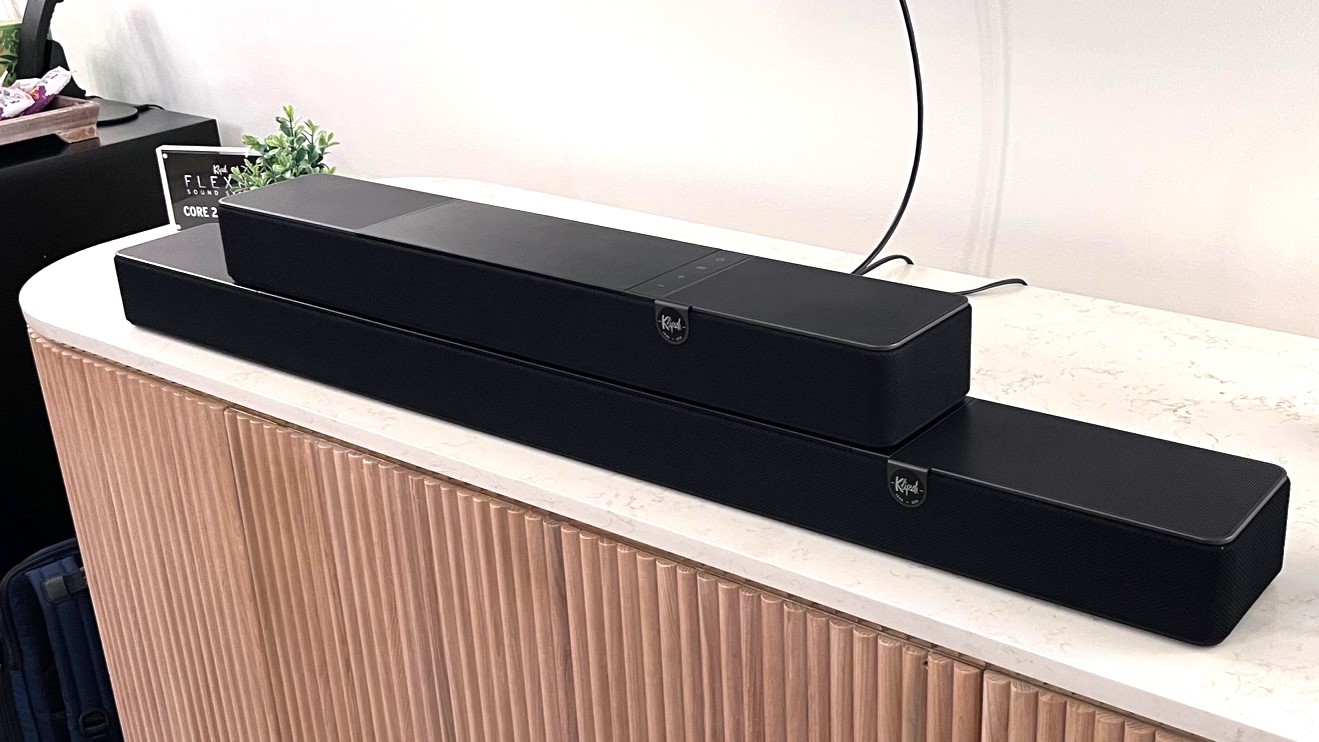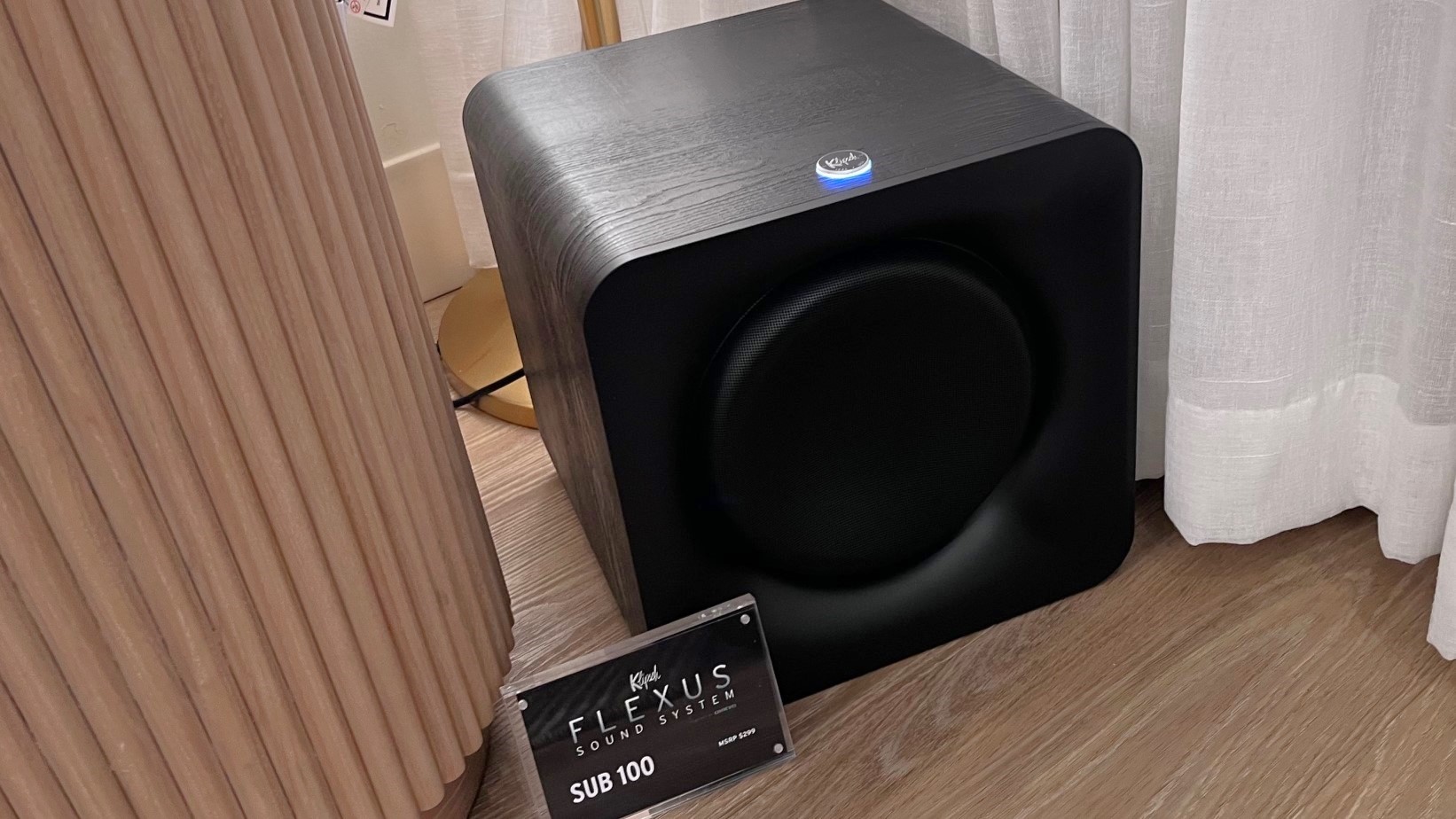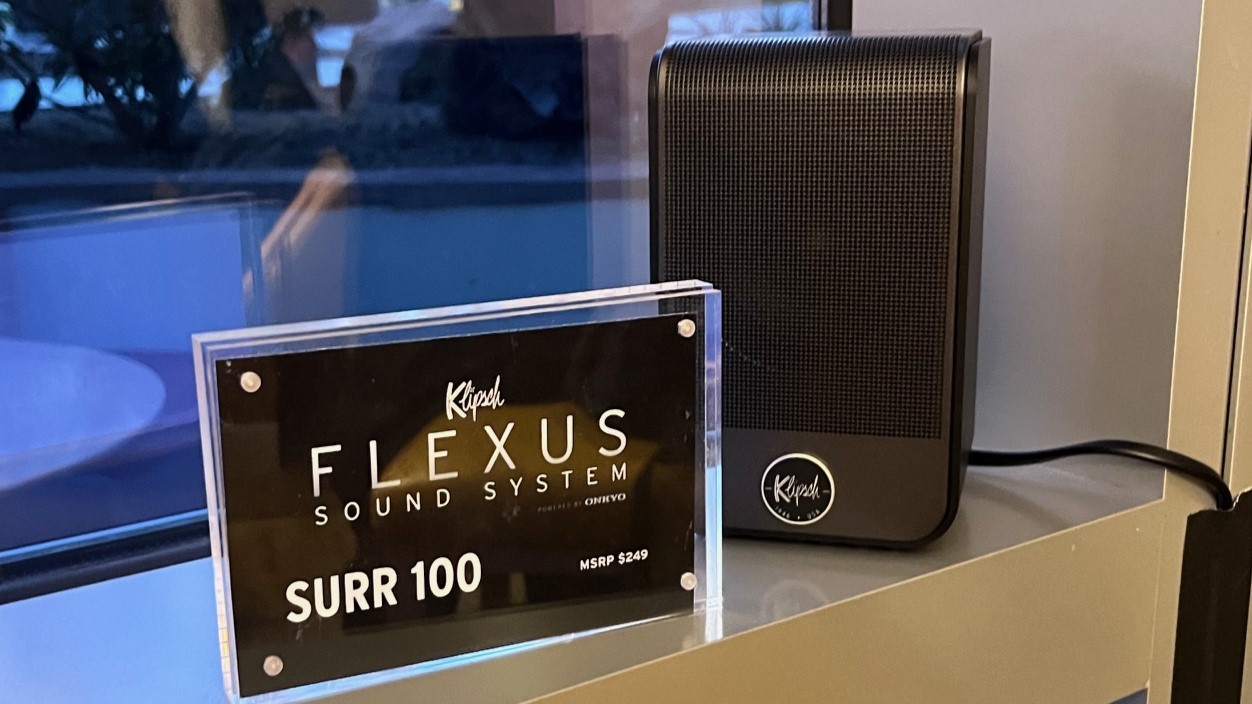Klipsch’s modular Dolby Atmos soundbar system hits the right home theater notes
Flexible and affordable

Klipsch is at CES 2024 showing a pair of soundbars aimed at budget-conscious movie fans. The Flexus Core 200 and 100 are priced at $449 (around £350 / AU$670) and $199 (around £156 / AU$300) , respectively, and both can be combined with a matching wireless subwoofer ($299, around £235 / AU$450) and surround sound speakers ($249, around £195 / AU$372) for an easy system upgrade path. I’ll get into the details of those in a bit, but the upshot here is that with the new Klipsch Flexus sound system, you can get a full 5.1.2-channel Dolby Atmos rig for just under $1,000 (around £780 / AU$1,490)
Flexus is a joint design and manufacturing effort with Japan’s Onkyo, a brand best known for its A/V receivers that is responsible for all internal electronics and amplification on the soundbars.
The best Dolby Atmos soundbars have come to include budget friendly options such as the Bose Smart Soundbar 600, a model that features upfiring speakers to deliver height effects in Atmos soundtracks. Like the Bose, Klipsch's Core 200 is a 3.1.2-channel model with upfiring speakers, while the Core 100 is a 2.1-channel model that uses virtual processing to deliver height effects in Atmos soundtracks.

In time-honored Klipsch fashion, a horn-loaded tweeter is used on the Core 200 to enhance dialogue clarity and is flanked by a quartet of 2.5-inch midrange drivers and dual 4-inch woofers for bass. The Core 100 uses dual 2.5-inch drivers and 4-inch woofers, but omits the horn-loaded tweeter. Both soundbars feature an HDMI input and HDMI eARC port for a TV connection.
For budget soundbars, both the Core 100 and 200 have a notably elegant design. A woodgrain cabinet finish blends seamlessly with metal mesh and black fabric speaker grille elements, and a large alphanumeric LED display – a rare feature on budget soundbars – helps visibility when making volume level and settings adjustments.
The Flexus sound system’s compact wireless subwoofer and surround speakers share the same cosmetic design as the Core 100 and 200. Same as with Sonos soundbars, two wireless subwoofers can be paired with the system, allowing for a 5.2.2 Dolby Atmos configuration.

Flexus is flexible – and affordable
When it arrives in April, Klipsch’s Flexus sound system could provide a strong alternative to modular soundbar systems from Sonos and Bose. The modular approach to system building is perfect for home theater fans on a budget who want to start off as inexpensively as possible by buying a main soundbar, and then expanding the system out with a wireless subwoofer and surround speakers as their budget allows.
Get daily insight, inspiration and deals in your inbox
Sign up for breaking news, reviews, opinion, top tech deals, and more.
Klipsch’s Flexus sound system also appears to provide a simpler approach to system building than those used by Sonos and Bose, both of which use advanced control apps for setup. And at under $1,000 for a full 5.1.2-channel system, it’s a more affordable option.
The Flexus sound system demo I heard at CES wasn’t the sort of full-bore experience that would reveal the true capabilities of the soundbars due to a business meeting being held in the same room – CES is an international tradeshow, after all. For that reason, I’ll have to reserve judgement until a later date, though movie dialogue in the demo was notably clear. Keep an eye out for a future review, since Klipsch’s new soundbars, the Core 200 in particular, could very well join the ranks of the best soundbars at the budget end of the price spectrum.
Check out our CES 2024 hub for all the latest news from the show as it happens. We'll be covering everything from 8K TVs and foldable displays to new phones, laptops, smart home gadgets, and the latest in AI, so stick with us for the big stories.
And don’t forget to follow us on TikTok for the latest from the CES show floor!
you might also like

Al Griffin has been writing about and reviewing A/V tech since the days LaserDiscs roamed the earth, and was previously the editor of Sound & Vision magazine.
When not reviewing the latest and greatest gear or watching movies at home, he can usually be found out and about on a bike.